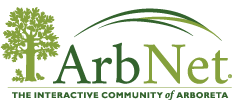The most basic level of accreditation requires achievement of the following standards:
- An arboretum plan documentation of some sort, such as an organizational plan, strategic plan, master plan, or other, that defines the purpose of the arboretum, its audience(s), the types of plants that are to be grown to achieve that purpose and serve those audiences, provisions for the maintenance and care of the plants, and provisions for the continuing operation of the organization through time with a clear succession plan.
- An arboretum organizational group of people or governing board or authority that is dedicated to the arboretum plan and its continuation beyond the efforts of a single individual. Such an organizational group can affirm fulfillment of standards and authorize participation as an accredited arboretum.
- An arboretum collection with a minimum number of 25 species, varieties or cultivars of trees or woody plants that have been planted and are growing in accordance with the arboretum plan. Plants in the arboretum collection must be labeled in some way as to identify them taxonomically, including scientific name and cultivar if applicable, and is available for public access.
- Arboretum staff or volunteers who ensure fulfillment of the arboretum plan and provide for the basic needs of the arboretum collection and functions of the arboretum.
- An arboretum public dimension that includes some level of public access, and at least one public event or educational program each year focused on trees or arboretum purposes (for example, an Arbor Day observance). See checklist below
Education & Community Engagement Tree Activities Checklist
Please check all activities that your arboretum participates in:
Open public access and events
Annual tree events (Arbor Day, International Forestry Day/week)
Self-guided walking tours
Giving engagement and outreach presentations for other organizations and groups
Hosting conferences or similar events
Exhibitions and/or interpretive signage
Recurring public programming
Guided walking/ tram tours
Docent training & opportunities
Conference (or similar venue) presentations
Course/class/workshop offerings
Hosting webinars/ seminars
Community/citizen science programs
Children’s Garden
School programs
Extensive / enhanced educational programming
Articulated engagement philosophy or interpretive plan with intended outcomes and assessment plan
Plant selection, care, and/or pest/disease consultation & support
Educational and outreach publications
Digital content - podcasts, online courses, social media outreach, etc
Ethnobotanical engagement (indigenous knowledge content & co-creation with community partners)
Accredited educational or training programs
Internship opportunities
Summer/ seasonal camps
Urban & community forestry
Urban and community agricultural and food forest programs and projects
Environmental justice and tree equity programs and projects
Urban and community greening efforts
Supporting the creation of new accredited arboreta

